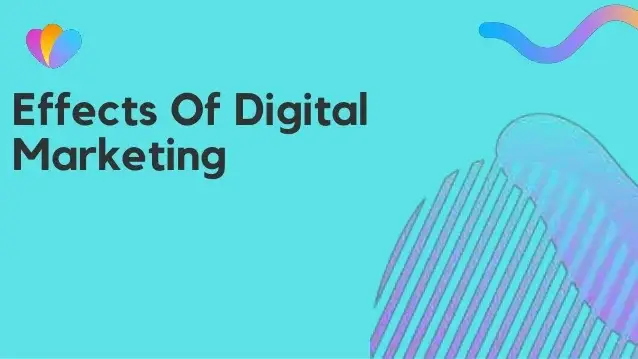Is SEO worth the investment?
Many small business owners often face challenges when integrating SEO techniques. The process is complex and time-consuming, requiring a depth of knowledge that may be beyond their resources.
Yet, even with their dedication to mastering SEO, a question hangs over their efforts:
Is SEO still worth it in 2024? Will it be effective for their business?
Understanding Google’s footprint couldn’t be more critical in 2024. It’s reported that 92.96% of global traffic comes from Google Search, Google Images, and Google Maps. This suggests that the right strategic approach to SEO can significantly impact global reach and audience engagement!
So, without further ado, let’s dig in to find the answer. We’ve got some data backed with strong statistics. Also, we’ll discuss some misconceptions people have about SEO, unveiling the truth.
Is SEO Really Effective?… If yes, HOW???
SEO offers many advantages, Let’s unveil… how! The following are the benefits that SEO brings to the table:
Increased Traffic
Increased Traffic is a crucial benefit of SEO.
Google holds over 90% of the total search engine market share. On Google, visibility means traffic.
So, websites appearing on Google’s first page receive the lion’s share of clicks, amassing 71% of overall search traffic. This statistic underscores the need for high search engine rankings to enhance a website’s visibility.
The higher a site appears in search results, the more likely it is to be visited by potential customers. This isn’t just a numbers game; it’s about attracting a relevant audience actively seeking your site’s information, products, or services.
Organic search accounts for 53% of all website traffic, demonstrating the significant role it plays in navigating the web. (Source: BrightEdge Research)
Enhanced Brand Awareness
SEO significantly amplifies brand awareness. When a brand consistently appears in top search results, it gains visibility among potential customers.
A study by Advanced Web Ranking shows that the first Google result achieved a 31.7% click-through rate. This means being visible on page one increases traffic and strengthens brand recognition.
Moreover, 75% of users never scroll past the first search page (HubSpot).
This behavior underscores SEO’s power to make brands memorable. Appearing in search results often makes consumers familiar with your brand. It makes them more likely to trust and choose your brand over competitors.
Thus, effective SEO directly contributes to building stronger brand awareness in your target market.
Higher Conversion Rates
SEO not only improves website usability but also significantly enhances conversion rates. A well-optimized website offers clear navigation and readable content, driving user engagement and satisfaction.
Statistics reveal that SEO leads have a substantial 14.6% conversion rate. This is higher than the approximate 1.7% conversion rate for traditional outbound methods like print ads or direct mail (Source: HubSpot).
This high conversion rate from SEO indicates that users finding your site via organic search are more likely to make purchases. Better site optimization doesn’t just attract more traffic. It converts more of this traffic into sales, optimizing resources and outcomes.
This efficiency is key for businesses aiming to maximize returns from their digital presence.
Common Misconceptions About SEO
You may be convinced by some misconceptions that may frustrate you, let’s discuss some major ones:
1. SEO Seems Too Pricey
Some think SEO costs too much. But, SEO can be more budget-friendly than paying for ads because it pays off more over time.
Research shows that SEO can bring back over 12 times more benefits than traditional marketing if you keep it.
Once your website begins to rank higher in search results, it can continue to attract traffic with minimal ongoing expense, unlike pay-per-click (PPC) advertising, where you pay for each visitor.
2. SEO Takes Forever to Work
Many believe SEO results take too long.
True! you won’t see success overnight, but SEO is worth waiting for.
Usually, it might take around 6 to 12 months to see big changes, but these results last longer and are more stable compared to quick, paid ad results that stop when you stop paying.
3. SEO Won’t Work Anymore Because of AI
With new AI tools like CHATGPT, some say SEO is no longer useful.
AI cannot replicate the dynamic and rich information crafted by humans across the internet. While AI reshapes existing data, it doesn’t create new knowledge.
Search engines do more than answer queries; they connect users to a world of resources, communities, and experiences — a scope AI doesn’t cover.
So, AI is helping make SEO even better. For example, as exemplified by Microsoft’s AI-augmented “Copilot,” it works with, not against, traditional search methods.
4. SEO is Too Hard to Keep Up With
Beginning your journey with SEO can initially appear daunting due to the vast amount of knowledge required. Staying current with the newest recommendations, changes in algorithms, and successful tactics can come across as a formidable challenge.
Yet, the basic principles of SEO, including crafting top-notch content, keyword optimization, maintaining a mobile-responsive site, and enhancing loading times, are within reach for many.
Fortunately, there are tools and professionals available that simplify managing SEO, making it more accessible for novices.
Navigating Common Pitfalls In Crafting An Effective SEO Strategy
- Enhance User Experience: Strive for a fluid and rapid website functionality complemented by straightforward navigation.
- Smooth Keyword Integration: Blend keywords naturally within your content to ensure both quality and pertinence without excessive usage.
- Monitor SEO Developments: Stay informed about the latest changes in search engine algorithms to adjust your SEO practices effectively.
- Foster Legitimate Link Connections: Concentrate on creating authentic, valuable link-building efforts. Purchasing backlinks can result in search engine sanctions, undermining instead of boosting your site’s ranking.
- Generate High-Quality Content: Dedicate efforts to crafting unique, engaging content that meets your audience’s needs and piques their interest.
- Evaluate Performance Regularly: Consistently monitor your SEO effectiveness with analytical tools like Google Analytics, enabling ongoing adjustments for enhanced results. Routinely use these tools to scrutinize and hone your SEO tactics for improved performance.
Key Takeaway – Is SEO Worth It In 2024?
In 2024, YES! SEO is worth it and remains a pivotal element of digital marketing strategy.
Online content is growing, and search engine algorithms are changing. And SEO is a key driver for organic traffic and visibility. Incorporating some key SEO strategies ensures your company’s online presence is prominent and profitable.




